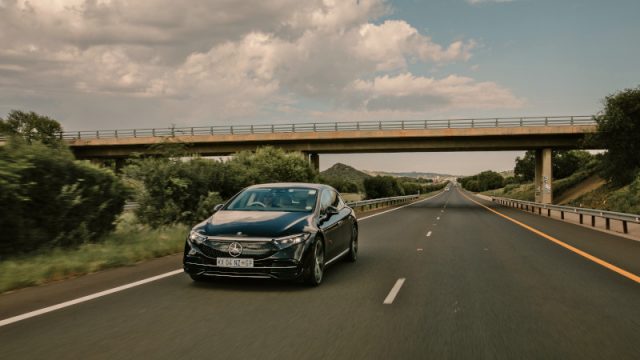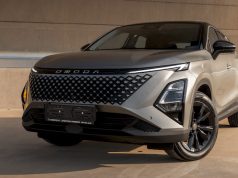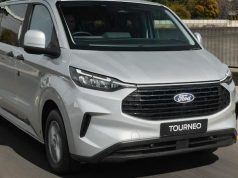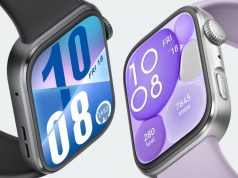How long does it take to drive an electric car between Johannesburg and Cape Town? Justus Visagie did it three times to find out – once with a Mercedes-Benz and twice with two different BMW models.
To drive a petrol or diesel car from Cape Town to Joburg (or vice versa), can be quick and easy. After a century of infrastructure build, you’re never far from a filling station. You only need about 15 minutes to fuel a car, bike, bakkie or truck, and you’re on the road again. But what is it like to use a fully electric vehicle (EV) for the same journey, while relying on the GridCars charging network? And how long would it take? To measure our time and distance, I enlisted the help of tracking and telematics company Netstar.
First, I used the BMW iX xDrive50, then the Mercedes-Benz EQS450+, and finally, the BMW i4 M50. My slowest trip was in the BMW iX and the quickest in the Mercedes EQS, as shown below.
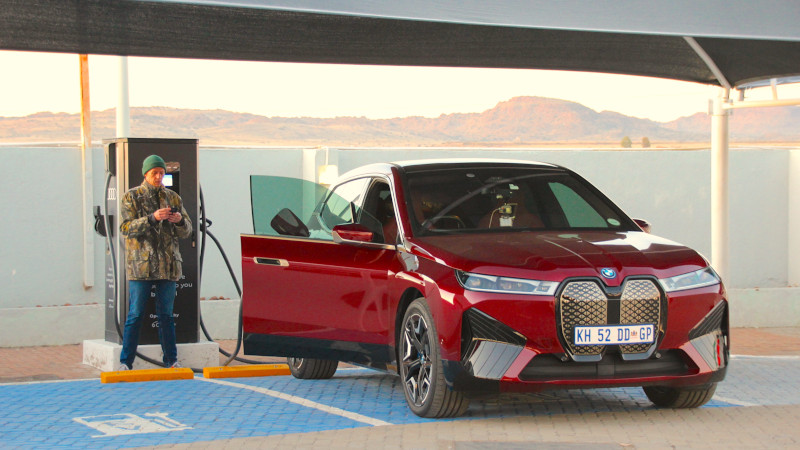
3. BMW iX xDrive50
Time: 20 hours and 17 minutes
Route: BMW Cape Town City to BMW Joburg City
Distance: 1 404 km
Departure and arrival dates: 28 and 29 June 2022
Number of drivers: Four
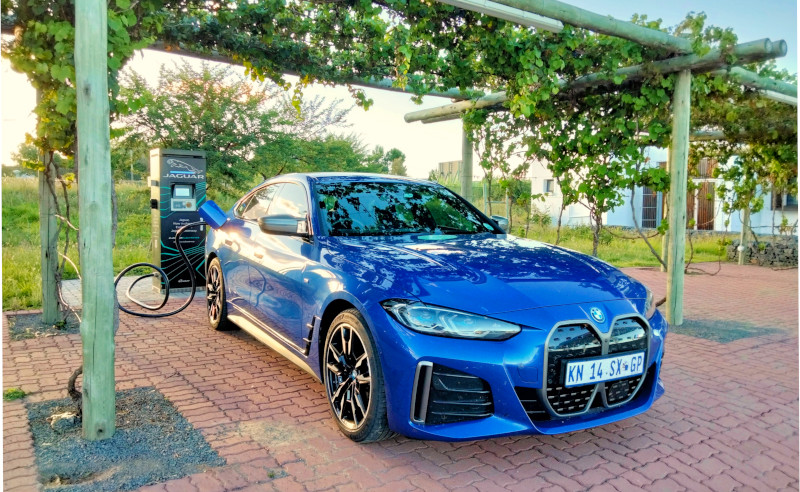
2. BMW i4 M50
Time: 19 hours and 15 minutes
Route: BMW Joburg City to BMW Cape Town City
Distance: 1 404 km
Departure and arrival dates: 6 and 7 March 2023
Number of drivers: One
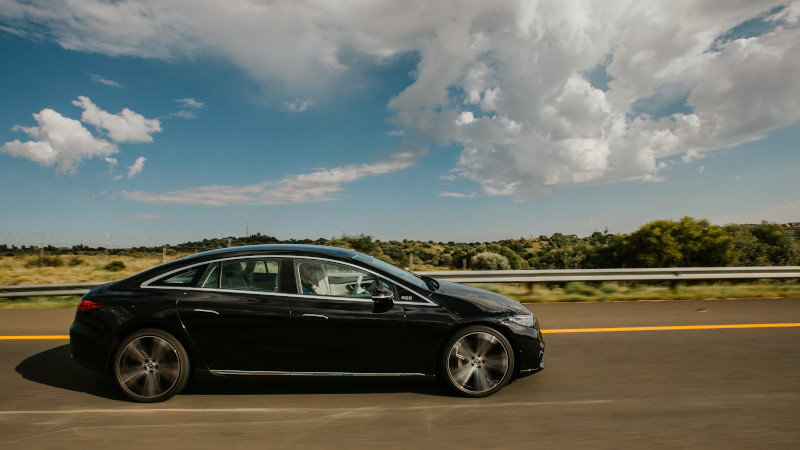
1. Mercedes-Benz EQS450+ sedan
Time: 19 hours and 6 minutes
Route: Mercedes-Benz Cape Town to Mercedes-Benz Sandton
Distance: 1 412 km
Departure and arrival dates: 28 February and March 1, 2023
Number of drivers: Two
Driving the BMW iX from Cape Town to Joburg
For the first trip, we chose the EV with the longest range available at the time. It was the R2,35 million BMW iX xDrive50, a luxury five-seater SUV similar in size and shape to the BMW X5.
We left Cape Town City BMW at 19:00 on a mild June evening in 2021. The iX’s massive battery (111,5 kWh) was at 93 percent capacity, giving it an open-road range of about 450 km.
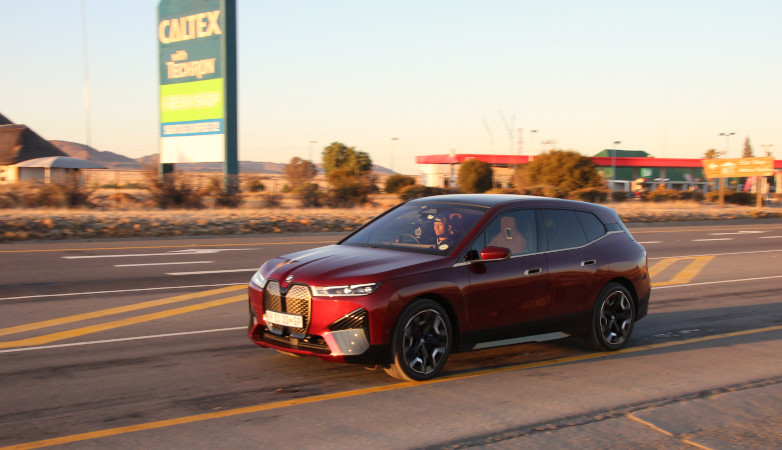
Load-shedding
Because South Africa was under the all-too familiar curse of darkness, we decide to top up at every charge point that had power available. At the slower DC chargers (22-40 kW), we only grabbed a bit of power before proceeding to faster chargers (60-150 kW). At these, we pumped the battery full or nearly full of juice.
Some charging stations do have back-up diesel generators. This allows EVs to charge during power failures using diesel power, to the delight of oil companies and anti-EV crowd.
Charging fast and slow
Our quickest stop and the slowest charger were at Laingsburg, 263 km from Cape Town, where we charged for just over 20 minutes. At the Windmill Casino in Bloemfontein (about 1 000 km from Cape Town), we filled the battery to 100 percent, which took over an hour. It was a time-consuming charge but made it possible to reach Joburg, without another charge.
The journey took 20 hours and 17 minutes, of which 14 hours and 56 minutes were spent driving.
Why did the journey with the iX take the longest? I put it down to the drivers lack of experience and speed.
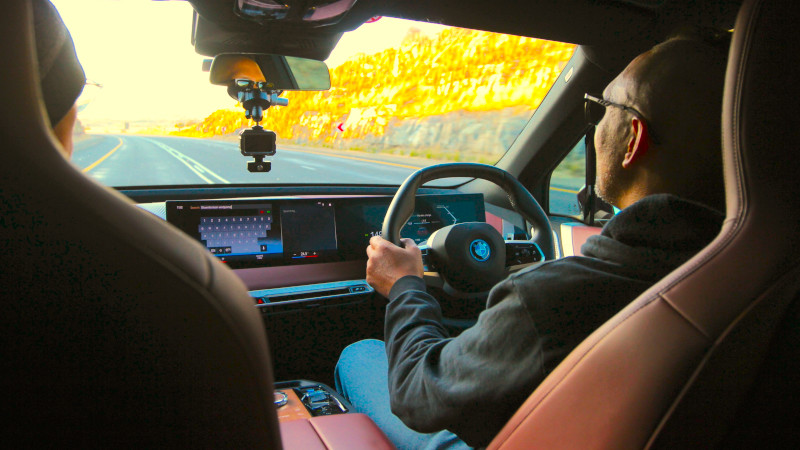
Pricey car, cheap fuel
Charging at public DC chargers, mostly installed by GridCars, we paid R5,88 per unit (1 kilowatt hour). The cost for the journey came to less than R1,29 per km or R1 811 in total.
Using a similar petrol or diesel car would have cost around R2 808 (R2,00 per km) if consuming 8 litres per 100 km, equal to 12,5 km per litre. So, there’s a significant cost advantage even when ‘filling up’ with the public chargers’ more expensive electricity. (Prior to departure, our first charge, at a BMW dealership in Cape Town, was free.)
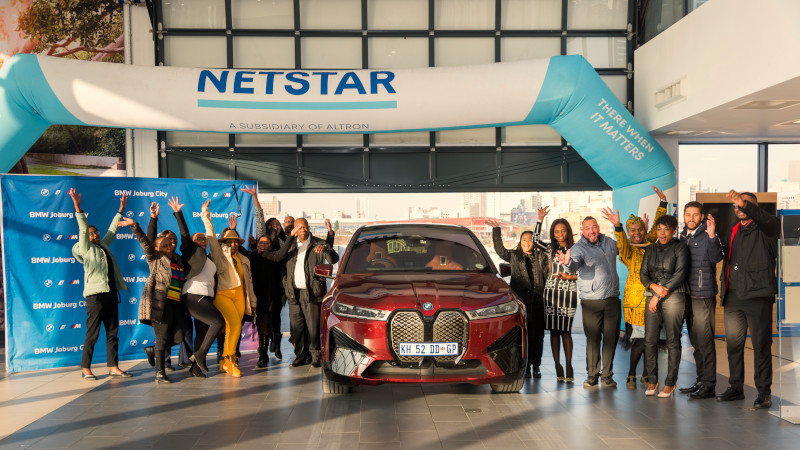
Specifications: BMW iX xDrive50
Maximum motor output: 385 kW and 765 Nm
Acceleration: 0-100 km/h in 4,6 seconds
Maximum range: Up to 630 km
Consumption: 21 kWh/100km (claimed)
Battery capacity: 111,5 kWh
Driven wheels: front and rear
Price new: R2 350 000
The Box Cutter rating: 5 out of 5
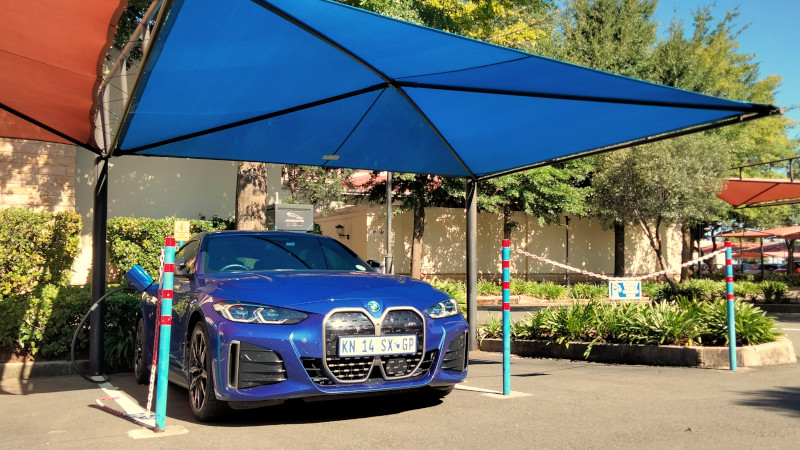
Driving the BMW i4 M50 from Joburg to Cape Town
The i4 M50 is a compact sports sedan that offers mind-bending acceleration, especially to the uninitiated. But, unlike the iX xDrive 50 or EQS 450+, it’s not a range queen. BMW quotes a maximum range per charge of 465 km, far below the 630 kilometres it claims for the iX xDrive50.
As a rule of thumb, I subtract 25-30 percent from a car manufacturer’s claimed figure to calculate real-world range. In this case, it would come to a realistic range of just below 350 km. The i4 M50 fared much better, though. I succeeded in getting the range per charge up to an indicated 412 km, without reducing the indicated speed to below 120 km/h.
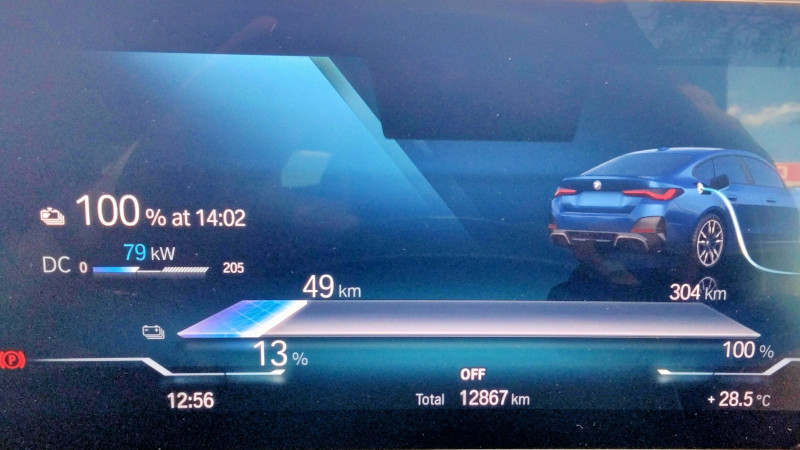
No fighting for a top-up
Driving the iX and EQS to Johannesburg, we drove through the night, only stopping to charge the batteries. This time, I split the journey into two, spending the night at a B&B in Hanover in the Northern Cape, 700 km south of Johannesburg. As the sole driver, I chose to travel during daylight hours for safety’s sake. However, I also wanted to prove that EV drivers generally don’t have to wait for opportunities to charge, even if there possibly are more vehicles on the road during the day. Over 2 800 km, I never encountered another EV. Each time, I simply parked, connected the car to the box, and started charging.
[mailchimp_list]
Plug in often
Even though load-shedding hovered around the level 4 mark, it had a minimal effect on my journey. I charged often: in Ventersburg, Bloemfontein, Colesberg, Richmond, Beaufort West, Laingsburg, and Worcester. It might seem obsessive, but it became a habit to plug the car in before going into a restaurant or shop. The quickest charge took less than 15 minutes, and the longest took about 1 hour, when I had a meal.
Completing the 1 404 km journey took 19 hours and 15 minutes.
As for the cost of charging, it came to roughly R120 per 100 km or R1,20 per kilometre. It’s worth noting that charging at home is roughly 60 percent cheaper. Running the BMW on Eskom power would only cost around 50 cents per kilometre.
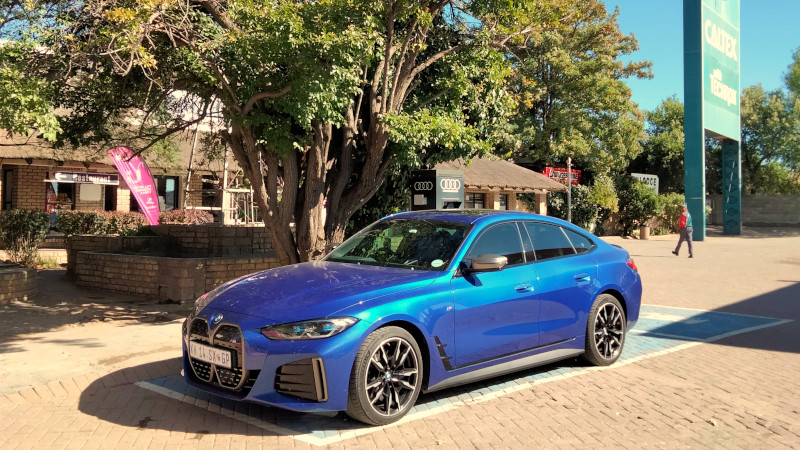
Specifications: BMW i4 M50
Maximum motor output: 245 kW and 795 Nm
Acceleration: 0-100 km/h in 3,9 seconds
Maximum range: up to 460 km
Consumption: 18,9 – 18,5 kWh/100km (claimed)
Battery capacity: 83,9 kWh
Driven wheels: front and rear
Price new: R1 646 200
The Box Cutter rating: 5 out of 5
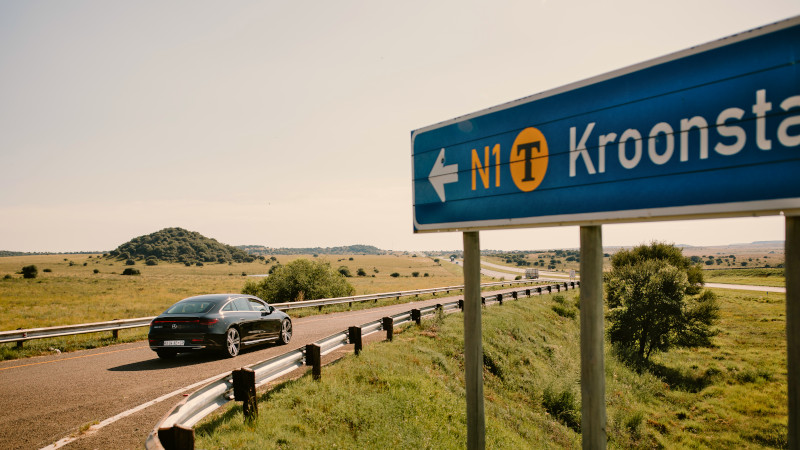
Driving the Mercedes-Benz EQS from Cape Town to Joburg
We left Cape Town at 17:56 on 28 February and reached our destination at 13:02 the next day, 19 hours and 6 minutes later. This is more than an hour faster than the previous Cape to Joburg record of 20 hours and 17 minutes.
Using GridCars public chargers again, we recharged the EQS450+ five times in the following towns: Laingsburg, Beaufort West, Colesberg, Bloemfontein, and Ventersburg. We reached the finish line, at Mercedes-Benz Sandton, with 171 km in reserve.
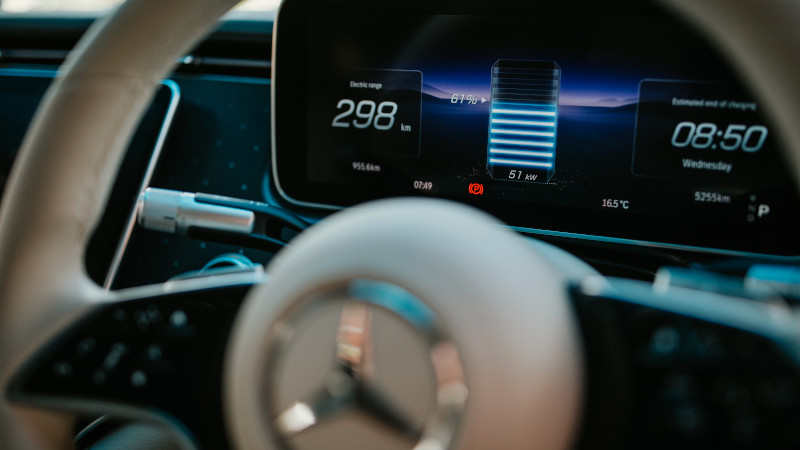
Optimistic range
Mercedes-Benz claims a best possible range of 782 km for the EQS450+, which, if true, would have required us to charge only once between Cape Town and Johannesburg.
The car gave us an actual open-road range of approximately 500 km on a full charge. We rarely charged the battery above 80 percent. From 80 to 100 percent, the rate of charge often slows down, which would have slowed our progress. A bit of pre-planning helped us to avoid chargers affected by load-shedding.
To power the Mercedes cost around R130 per 100 km.
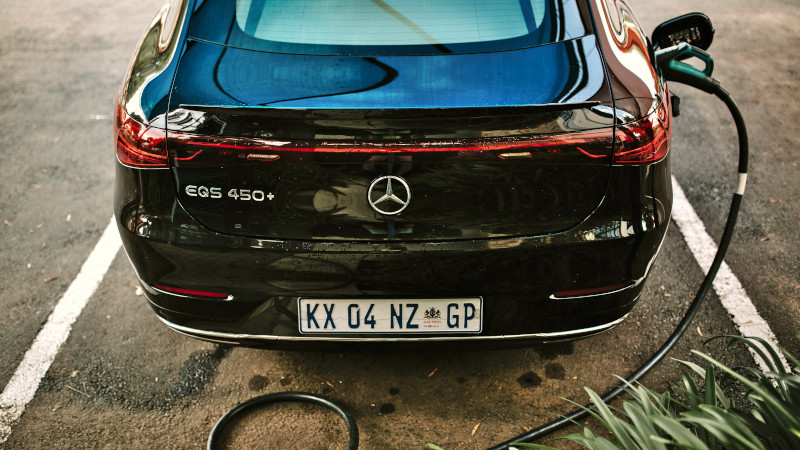
Specifications: Mercedes-Benz EQS450+
Maximum motor output: 245 kW and 568 Nm
Acceleration: 0-100 km/h in 6,2 seconds
Maximum range: up to 782 km
Consumption: 19-16 kWh/100km (claimed)
Battery capacity 108,4 kWh
Driven wheels: rear
Price new: R2 620 500
The Box Cutter rating: 4 out of 5

The issue of affordability
It’s impossible not to address the substantial purchase prices of the Mercedes EQS, BMW iX and BMW i4 M50. But cars from luxury brands are expensive, whether powered by liquid fuel or electricity. Expect more affordable cars, with a range close to the BMW i4’s, to enter the country in 2023.
Less expensive EVs
The cheapest new electric cars currently on sale or available to order locally are the MINI Cooper SE Hatch 3-door (R742 102), MINI Cooper SE Hatch 3-door Resolute Edition (R745 402), BYD Atto 3 Standard (R768 000), and the Volvo EX30 Core Single Motor (R775 900).
Electricity price increase
It’s worth noting that GridCars raised its prices by 25 percent on the 1st of June 2023, after absorbing the cost of electricity price increases over the last four years. The new rates are as follows: R7,35 per kWh on a DC charger and R5,88 per kWh on an AC charger. In a statement GridCars said since the rate of R5,88 per kWh was established, Eskom’s increases have amounted to a total of 66 percent.
Photos by Willem van der Berg, Mike Kobrin, and Justus Visagie


